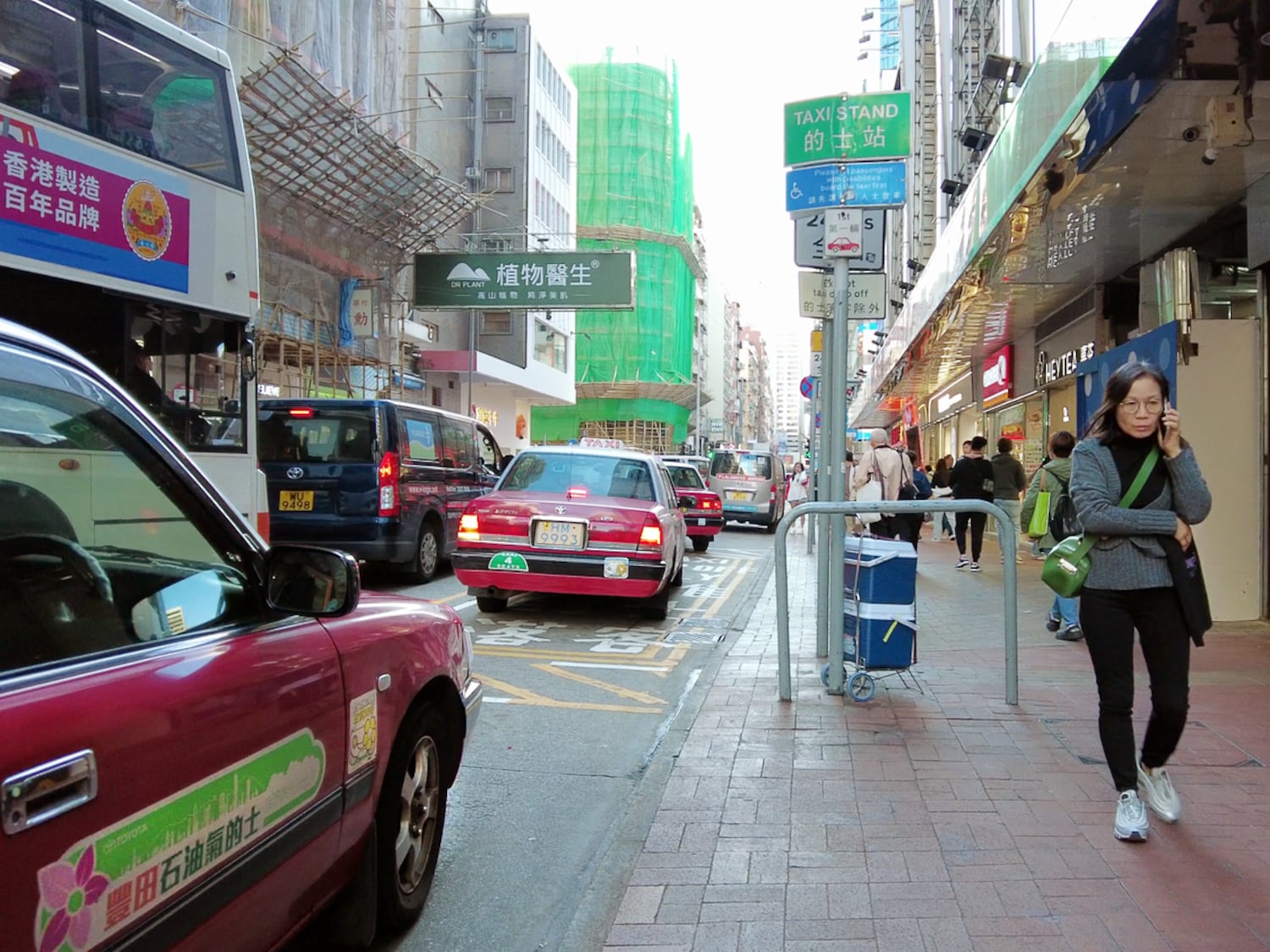Authorities in Hong Kong are stepping up surveillance of the city’s 7 million residents with plans to deploy automated police drones, artificial intelligence and thousands of new cameras in public places, including taxis, according to recent government announcements.
The police are currently installing an additional 2,000 surveillance cameras in public places including the controversial smart lampposts targeted by protesters in 2019, Senior Superintendent of Police for Operations Leung Ming-leung told a meeting of the Independent Police Complaints Council on Dec. 17.
By 2027, an additional 7,000 cameras will be installed to monitor “crime black-spots,” with a pilot scheme already rolled out in Mong Kok, which saw mass pro-democracy protests and gatherings in 2014 and 2019, as well as the “Fishball Revolution” of 2016.
The move comes amid an ongoing crackdown on public protest, peaceful activism and freedom of speech in Hong Kong in the wake of the 2019 protest movement.
Thousands have been arrested on public order charges and hundreds under two national security laws, which ban criticism of the authorities or references to the protests.

“At places where there is a higher footfall, we would install the CCTV with a view to preserving public order and public safety,” Leung said.
Police will also install “public address systems” to boost communication with the public, he added.
Facial recognition
As early as 2019, protesters were damaging and toppling controversial “smart lampposts” that had been newly installed in the city, saying their specification included facial recognition functions, although officials said at the time they hadn’t been activated.
Police Commissioner Raymond Siu said in February that use of facial recognition technology to track people caught by the cameras was likely in future.
RELATED STORIES
Hong Kong officials learn neighborhood surveillance from China
Hong Kong police ask for billions to fund digital network linked to bodycams
Hong Kong adds hundreds of surveillance cameras in public places
Leung told the Council that footage captured by CCTV has helped solve 97 cases so far this year, including assaults and murders, but it is currently not intended for use in traffic violations like running a red light.
He said the authorities used surveillance cameras to estimate the size of crowds in the Lan Kwai Fong bar district at Halloween, “to help with manpower deployment.”
Automated drone patrols
Secretary for Security Chris Tang told lawmakers police are currently looking at bringing in automated drone patrols along default routes across Hong Kong, with images analyzed by AI for policing purposes.
“This can lead to greater operational effectiveness and higher work quality,” Tang said, adding that the program would comply with current safety and privacy laws.
Hong Kong’s police force is already equipped with a range of different drones and monitoring instruments, and are already increasingly being used by police, customs and immigration for investigation purposes, Tang told the Legislative Council on Dec. 11.
Police also use drones to conduct high-rise patrols at crime black spots, he said.
“For instance, mounted thermography and infrared detection systems are used to detect the presence of suspicious persons lingering or hiding at remotely located places or at difficult terrains,” Tang told lawmakers.

Meanwhile, the Transport Advisory Committee has said it plans to amend the law to mandate in-vehicle and dashboard cameras and GPS systems in all taxis.
“The camera system proposal … will better safeguard the interests of taxi drivers and passengers in cases of disputes and enhance driving safety for taxis,” Committee Chairman Stephen Cheung said in a statement on Dec. 17.
“These two measures will be conducive to enhancing the overall quality and image of taxi services,” he said.
‘It’s overkill’
Not everyone thought the additional cameras would make them safer, however.
“I don’t think it will,” a passerby who gave only the surname Lai for fear of reprisals told Radio Free Asia on Thursday. “On the contrary, if the streets are being monitored, there will be no privacy.”
“I really think it’s overkill.”
A taxi driver who gave only the surname Wong for fear of reprisals said: “I don’t really agree with it, because of the privacy issues.”
“Who gets to see it? It could be misused, or used as a political tool by the government,” he said. “I’m very worried about that.”
A passerby who gave only the surname Chan told RFA in an earlier interview that he had doubts about the true purpose of the surveillance cameras because there isn’t much street crime in Hong Kong.
“There really aren’t that many thieves,” he said. “But it’ll mean that if we have something we want to speak out about in future, or to oppose, we won’t be able to.”
Translated by Luisetta Mudie. Edited by Roseanne Gerin.
This content originally appeared on Radio Free Asia and was authored by Wei Sze, Luk Nam Choi and Edward Li for RFA Cantonese.
This post was originally published on Radio Free.